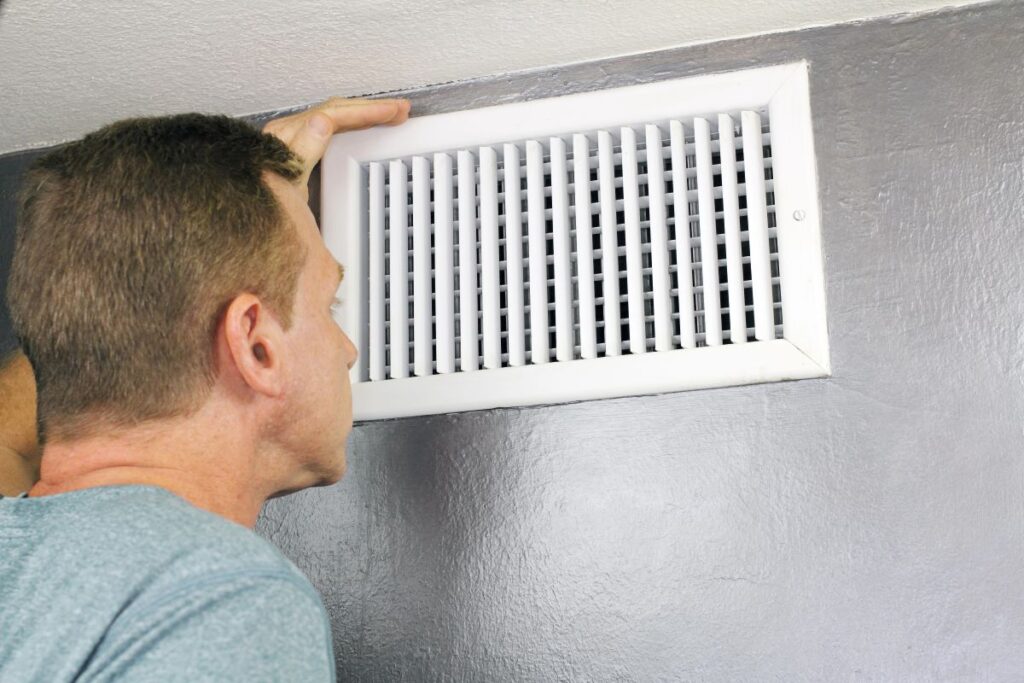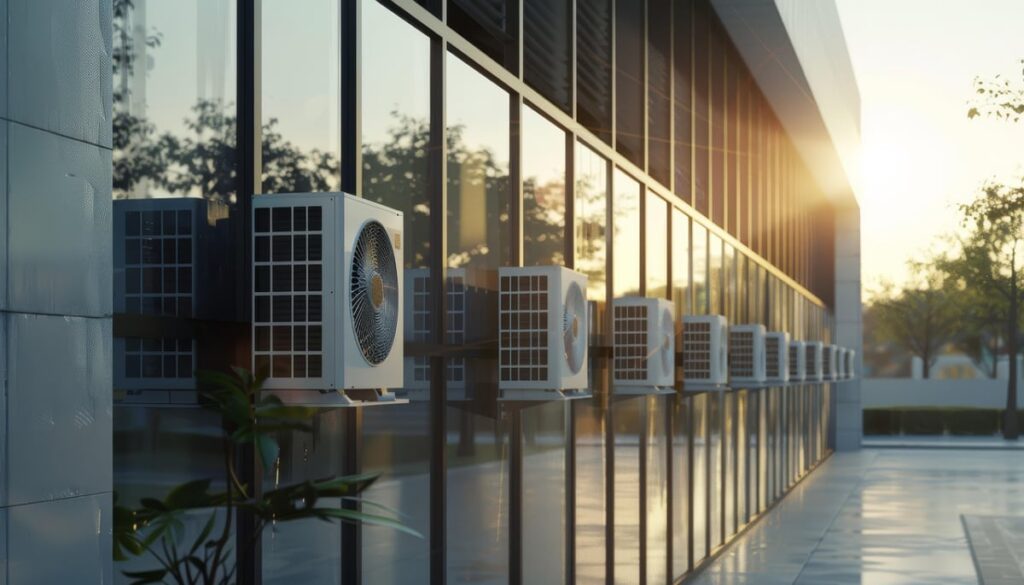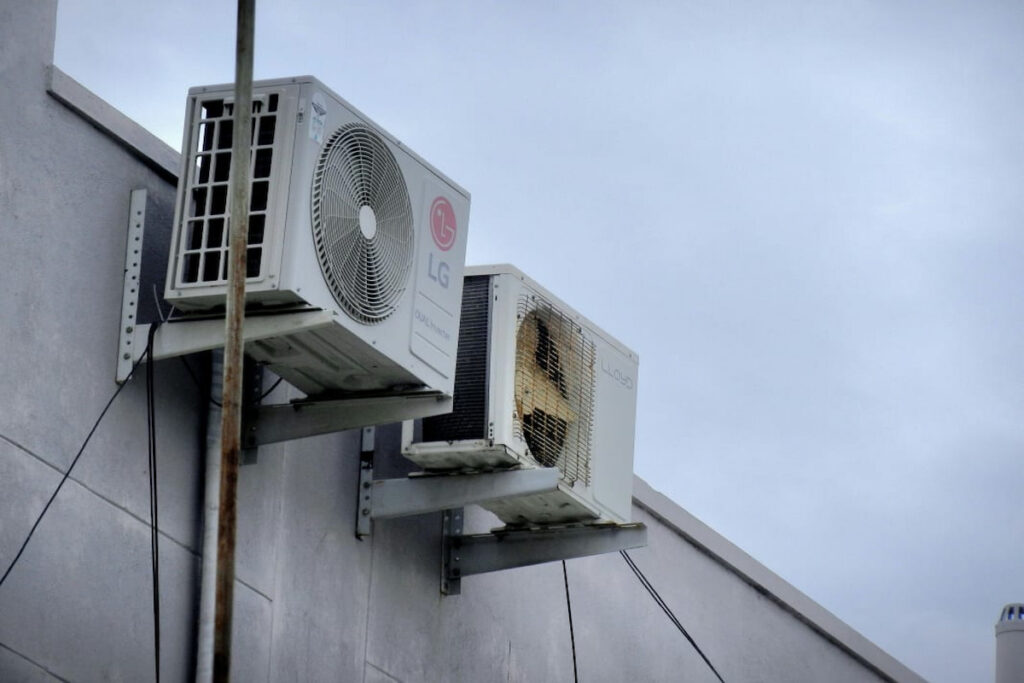Ever catch a whiff of something funky coming from your AC vents in your home?
You’re not alone! Strange HVAC smells aren’t just annoying; they’re often a sign that something’s not quite right with your heating or cooling system.
Think of it like this: your HVAC system is trying to talk to you! Different smells often point to specific problems. Catching these odors early can save you a ton of money, make your home’s air cleaner, and keep your system running longer.
And let’s be real, with the way the Lake Havasu City climate can be, with its hot temperatures and dry air, it can really put a strain on your HVAC system. So, let’s dive in and figure out what your HVAC is trying to tell you.
Why is My HVAC System Producing Strange Smells?
So, what’s causing that weird smell? Here are some of the usual suspects:
- Mold and Mildew Growth: That damp, musty smell? Probably mold or mildew.
- Dirty Filters: A stale, dusty odor means it’s time to change that filter!
- Burning Smells: A burning smell is a HUGE red flag. Overheating or electrical issues could be the cause.
- Refrigerant Leaks: A sweet or chemically smell? Could be a refrigerant leak.
- Gas Leaks: ROTTEN EGG SMELL? GET OUT OF THE HOUSE! This is a serious natural gas leak.
- Dead Animals in the System: Yeah, it’s as gross as it sounds. A decaying odor means something crawled in and didn’t crawl out.
- Dirty Evaporator Coil: This can cause musty or stale odors.
- Sewage Smell: Ugh. A foul odor might indicate plumbing problems with your vents.
Common HVAC Smells and What They Mean (Detailed Breakdown)
A. Musty or Moldy Smell
What it means: Moisture buildup and mold/mildew growth inside your HVAC system. Think poor drainage, clogged drain lines, or just plain old high humidity. This is bad news because mold can cause allergies and breathing problems.
How to identify it: A lingering damp smell, especially when the AC is running.
What to do NOW: Turn off the system to stop the mold from spreading.
B. Burning Smell
What it means: Overheating parts or electrical problems. Could be a motor working too hard, bad wiring, or dust on the heating elements. This is a fire hazard!
How to identify it: A strong burning smell, like burning plastic or rubber.
What to do NOW: Turn off the system IMMEDIATELY and call a professional ASAP.
C. Rotten Egg Smell (Sulfur)
What it means: Natural gas leak. THIS IS AN EMERGENCY! Natural gas is flammable and dangerous.
What to do NOW: EVACUATE THE HOUSE IMMEDIATELY and call emergency services or the gas company. Don’t turn on any lights or use your phone inside the house!
D. Chemical Smell (Sweet or Acrid)
What it means: Refrigerant leak. Leaky refrigerant lines are the culprit. Refrigerant can be harmful to your health.
How to identify it: A distinct chemical odor, sometimes described as sweet or slightly sour.
What to do NOW: Turn off the system and call a professional.
E. Stale or Dusty Smell
What it means: You haven’t changed your air filter in ages! Dust has built up. Dirty filters hurt air quality and make your system work harder.
How to identify it: A general stale odor that gets worse when the system is running.
What to do NOW: Replace the air filter! Make it a regular thing.
F. Dead Animal Smell
What it means: Animals have gotten trapped in your ductwork and, well, died. Usually rodents or birds. This is a hygiene nightmare and smells awful.
How to identify it: A strong, decaying odor coming from the vents.
What to do NOW: Call a professional. They’ll need to remove the animal and clean the ducts.
G. Sewage Smell
What it means: Sewer gas is leaking into your ductwork. Usually caused by plumbing vent problems near the HVAC system. This is a health and safety hazard.
How to identify it: A distinct, foul sewage odor, especially after using the plumbing.
What to do NOW: Call a professional for inspection and plumbing repairs.
The Impact of Hot Cities Climate on HVAC Smells (like Lake Havasu)
Blazing summers and dry air from hot cities can make your HVAC system work overtime, which can lead to smell problems.
Those high temperatures create the perfect breeding ground for mold inside your AC. Dust storms can clog filters faster, leading to those stale, dusty smells.
That’s why regular HVAC maintenance is even MORE important here.
DIY Troubleshooting vs. Calling a Professional
Changing your air filter yourself is a simple and safe DIY task. But, for serious issues like gas leaks, refrigerant leaks, burning smells, dead animals, or persistent mold, call a professional HVAC technician. Trying to fix these things yourself can be dangerous.
Preventative Measures: Keeping Your HVAC System Smelling Fresh
The best way to deal with HVAC smells is to prevent them in the first place! Here are some easy tips:
- Change your filter regularly (every 1-3 months, depending on how much you use it).
- Get annual HVAC maintenance and tune-ups.
- Make sure your home is well-ventilated.
- Keep the area around the outdoor unit clean.
Conclusion
Don’t ignore weird smells coming from your HVAC system! Tackling these problems early can improve your air quality, prevent expensive repairs, and keep your system running smoothly. Play it safe and call a professional for anything that seems dangerous.
Call to Action
The Weatherman AC is your local Lake Havasu City HVAC expert! Whether you need routine maintenance, emergency repairs, or a whole new system, our experienced team is here to help.
Don’t wait if you’re smelling something strange or having any other issues. Contact us!
We provide comprehensive repair and maintenance services, and if you need a new system, we can guide you through installation and replacement services too.


